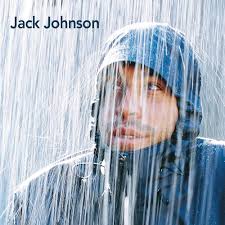Lolita written by Vladimir Nabokov, follows a 40-year-old man named Humbert who moves to America after experiencing some time at a mental hospital. As he arrives he is placed with the Haze family. The Haze family has the mother, Charlotte Haze, and her 12-year-old daughter, Dolores Haze. Humbert sees particular young girls between the ages of 10-14 as “nymphets” which he describes as evil, tempting creatures, similar to a succubus. His attraction to young girls began after his childhood sweetheart died from typhus when the two were 14.
Humbert feels very strongly about Dolores and interacts with her as much as he can, while still trying to “preserve her innocence.” Dolores grew up without a father and saw Humbert as such once he began living in their home. As the story progresses, Humbert’s obsession increases and when Dolores leaves for camp he has thoughts of leaving and coming back once she’s home from camp. However, his plans are ruined when Charlotte confesses her love for him and asks him to leave if he doesn’t feel the same way. He marries Charlotte to keep his precious “Lolita” (Dolores) around him for longer. (Lolita is a common nickname for Dolores but was exclusively used by Humbert).
Months go by and Humbert’s secret becomes known when Charlotte finds and reads his journal. His confessions of how much he loathed Charlotte and his sexual desire for her young daughter are revealed and Charlotte is in despair and demands him to leave her home. In her delirium and hysteria, she runs out to send a letter to Dolores and others when she is hit by a car and killed.
Humbert decides to take Lolita from camp and they go on a two-year adventure traveling the states and staying in motel after motel. Their sexual relationship begins early on and as time passes the tension between the two grows. As Lolita ages and becomes more mature, her antics and desires to hang out with friends and boys frustrate Humbert and cause him to lash out at the young girl. His desire falters off and on for the girl as she shows signs of maturity and rebellion. Finally, the relationship becomes too much for Lolita and she runs away from Humbert. Humbert spends 2 years searching for Lolita and her “kidnapper.” As he begins giving up and settling down he receives a letter from Dolores telling him that she is married and expecting a baby and needs money. He visits his Lolita and he notices her aged stature and wide belly carrying a baby. Although 17 is much too old in Humbert’s books to be classified as a nymphet, his love remains for Lolita even at her age. Humbert gives her the money and asks her to come back with him to which she refuses. Humbert leaves, never seeing Lolita again.
Overall the book was beautifully written. The fluidity of Nabokov’s language makes it difficult for the reader to hate or disagree with Humbert. The book is told from Humbert’s point of view and the intellectual language along with evidence-based reasons for his attraction to children, we as readers have a hard time noticing the pedophilia and manipulation Humbert displays. The plot progression was also very well executed. It never stayed at one plot point too long and was well-rounded with imagery, setting, and plot turning points.
My favorite character was Lolita, it was interesting to see how she was described and to see her mature and break away from her and Humbert’s sick relationship. The worst part of reading the book was to see how Lolita had her innocence and childhood ripped from her. Even following her relationship with Humbert, her loss of innocence caused her still to seek the attention and attraction of older men. She also ended up pregnant at 17 with a man she just married and was poor with no money. To imagine how well her life could have been if not for Humbert destroying it causes a heart-sinking thought after finishing the book.
Overall the book Lolita is a beautiful novel that I don’t believe should be banned in high school libraries. I think the content displays pedophilic behaviors and how to look out for them while also telling of the dangers of trusting those whom we do not know well. I think children 16 and older would highly benefit from reading such a book. Other than just the plot content, the writing and literature itself are eloquently written. Considering the curriculum many high school students follow this piece of literature could also be used to write thought-provoking literary analysis. All in all, I would highly recommend this book to my peers.















